Einstein Experts for Media
Search Results
You searched for "Aging"
17 results found
Julio A. Aguirre-Ghiso, Ph.D.
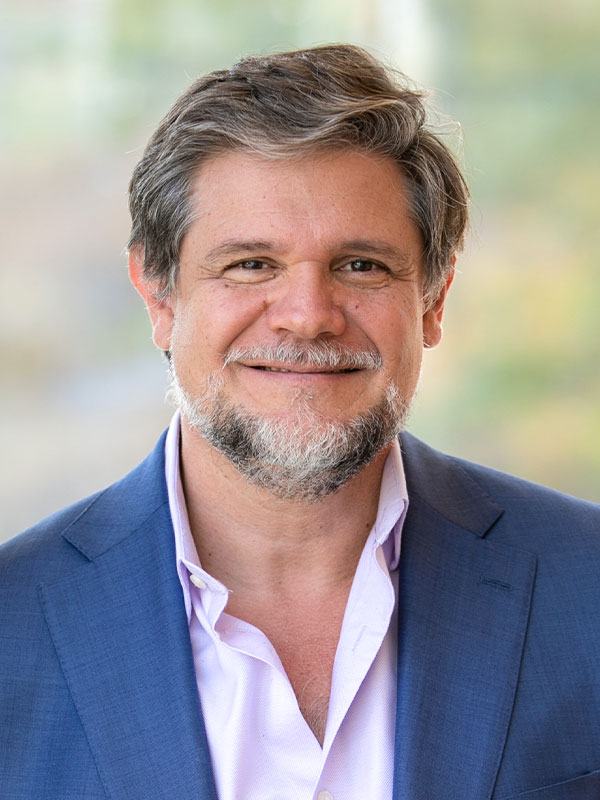
Professor, Cell Biology, Medicine and Oncology
Founding director, Cancer Dormancy and Tumor Microenvironment Institute
Co-Director, Gruss-Lipper Biophotonics Center
Co-Leader, Montefiore Einstein Comprehensive Cancer Center Tumor Microenvironment and Metastasis Program
Cancer biologyCancer dormancy and the tumor microenvironmentCancer metastasisStress signaling
Julio Aguirre-Ghiso, Ph.D., is an international leader in cancer cell dormancy and metastasis. He has helped lead a major shift in the cancer biology field by investigating how cancer cells hibernate, undetected, for long periods of time and what causes them to suddenly awaken to seed deadly, treatment-resistant metastases. read more...
Nir Barzilai, M.D.

Professor, Medicine (Endocrinology)
Director, Institute for Aging Research
Director, Nathan Shock Center of Excellence in the Basic Biology of Aging
Ingeborg and Ira Leon Rennert Chair of Aging Research
AgingBiology of agingLongevity genes
Dr. Barzilai discovered the first “longevity gene” in humans. His research established that the gene variant that leads to high HDL, or “good cholesterol,” is linked to healthy aging and extreme longevity. Dr. Barzilai has been profiled by major outlets, including The New York Times, PBS’ “NOVA scienceNow” and National Geographic. read more...
Aviv Bergman, Ph.D.
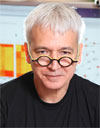
Professor and Founding Chair, Systems & Computational Biology
Professor, Pathology
Professor, Dominick P. Purpura Department of Neuroscience
Harold and Muriel Block Chair in Systems & Computational Biology
Evolutionary biologySystems biologyBiological modeling
Dr. Bergman combines data from basic and clinical research to create computer models of complex biological systems. As these models evolve, his work could contribute to calculating individualized medical outcomes and guiding treatment for patients based on their personal genetic make-up. Dr. Bergman has teamed with colleagues to study a variety of complex conditions, including aging, cancer and neurodegenerative diseases. read more...
Craig A. Branch, Ph.D.

Associate Professor, Radiology
Director, Gruss Magnetic Resonance Research Center
Co-Director, EGL Integrated Imaging Program
Magnetic resonance imaging (MRI)Sickle cell disease Traumatic Brain Injury and Concussion MRI measures of function and physiology
John S. Condeelis, Ph.D.

Professor, Cell Biology
The Judith and Burton P. Resnick Chair in Translational Research
Chair Emeritus Department of Anatomy & Structural Biology
Co-Director, Integrated Imaging Program
Scientific Director, Analytical Imaging Facility
Director, Integrated Imaging Program for Cancer Research
Biomedical technologiesIntravital imagingTumor microenvironmentBreast cancerMetastasis
Dr. Condeelis is a pioneer in developing microscope techniques for use in “intravital imaging” – observing the behavior of cells in living animals. His work has led to a clinical test of biopsy tissue to determine whether a woman’s breast cancer will spread (metastasize), which could help determine treatment. Because of the test’s success, Dr. Condeelis and colleagues have licensed the patent rights to a biotech firm, which is developing the tissue test into a commercial product. read more...
Jill P. Crandall, M.D.

Professor, Department of Medicine (Endocrinology)
Jacob A. and Jeanne E. Barkey Chair in Medicine
Chief, Division of Endocrinology
Director, Fleischer Institute for Diabetes and Metabolism
DiabetesType 2 diabetesDiabetes prevention
Clinical TrialsPrediabetesResveratrol
An expert in diabetes prevention, Dr. Crandall is director of the Diabetes Clinical Trials Unit at Einstein and Montefiore and a principal investigator for several NIH-sponsored clinical trials, including the Diabetes Prevention Program Outcome Study (for which she holds several national leadership positions, including Executive Committee membership), Glycemia Reduction Approaches in Diabetes (GRADE) and the PERL (Preventing Early Renal Loss) study. read more...
Ana Maria Cuervo, Ph.D., M.D.
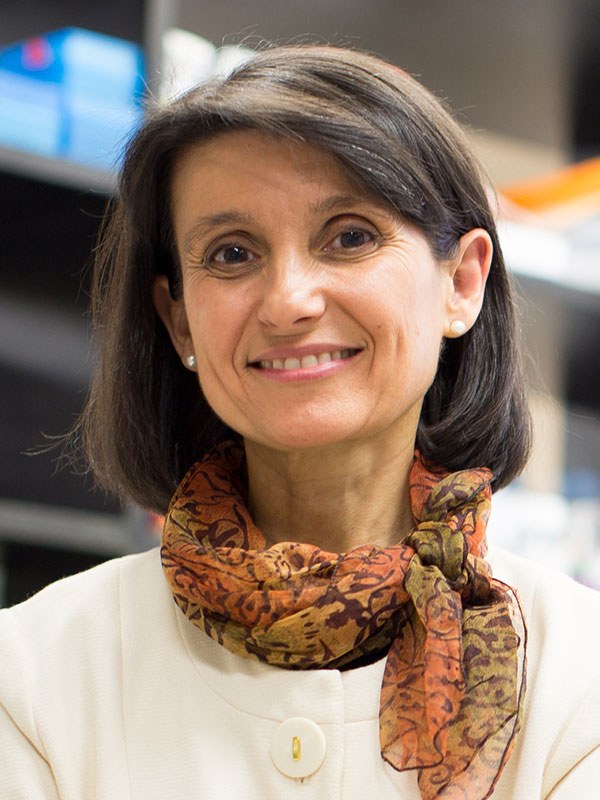
Professor, Developmental and Molecular Biology
Professor, Anatomy and Structural Biology
Co-Director, Institute for Aging Research
Robert and Renée Belfer Chair for the Study of Neurodegenerative Diseases
Molecular BiologyAgingAutophagy
Cellular biology
Dr. Cuervo is considered a leader in the field of autophagy— the process by which cells remove and recycle their waste. The Barcelona, Spain native is also an expert on the cellular biology of aging. Dr. Cuervo has been quoted in numerous publications, including The New York Times, Nature, Science, Scientific American, and The Scientist. read more...
Vilma Gabbay, M.D.

Professor, Psychiatry and Behavioral Sciences
Professor, Dominick P. Purpura Department of Neuroscience
Co-Director, Psychiatry Research Institute of Montefiore and Einstein (PRIME)
Director, Pediatric Mood and Anxiety Disorders Research Program, Einstein and Montefiore Health System
Pediatric anxiety & mood disordersAdolescent depression & suicideBiology of depression/neuroinflammationCOVID-19 & psychosis
Vilma Gabbay, Ph.D., is one of the nation’s leading experts on pediatric mood and anxiety disorders. She has received numerous federal grants to study a range of subjects, including neuroinflammation, teenage anhedonia (inability to feel pleasure), and brain systems related to reward-seeking behaviors in adolescent suicide and depression. read more...
Mario J. Garcia, M.D.
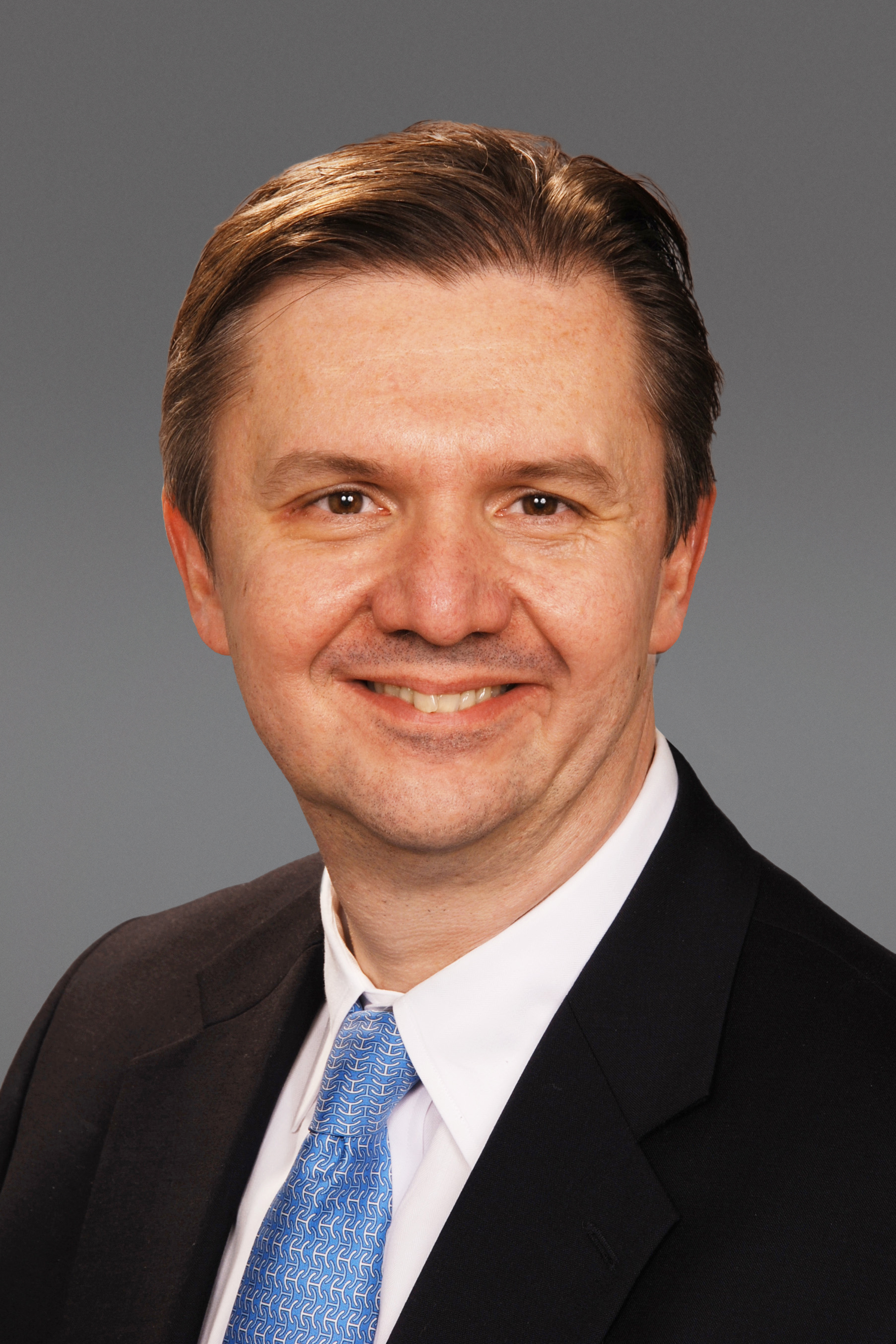
Co-Director, Montefiore Einstein Center for Heart and Vascular Care
Chief, Cardiology, Department of Medicine, Einstein and Montefiore Health System
Professor, Medicine (Cardiology), Einstein
Pauline A. Levitt Chair in Medicine, Einstein
Heart DiseaseCardiologyCardiac imaging
Cardiovascular disease
Vilma Gabbay, Ph.D., is one of the nation’s leading experts on pediatric mood and anxiety disorders. She has received numerous federal grants to study a range of subjects, including neuroinflammation, teenage anhedonia (inability to feel pleasure), and brain systems related to reward-seeking behaviors in adolescent suicide and depression. read more...
Charles B. Hall, Ph.D.
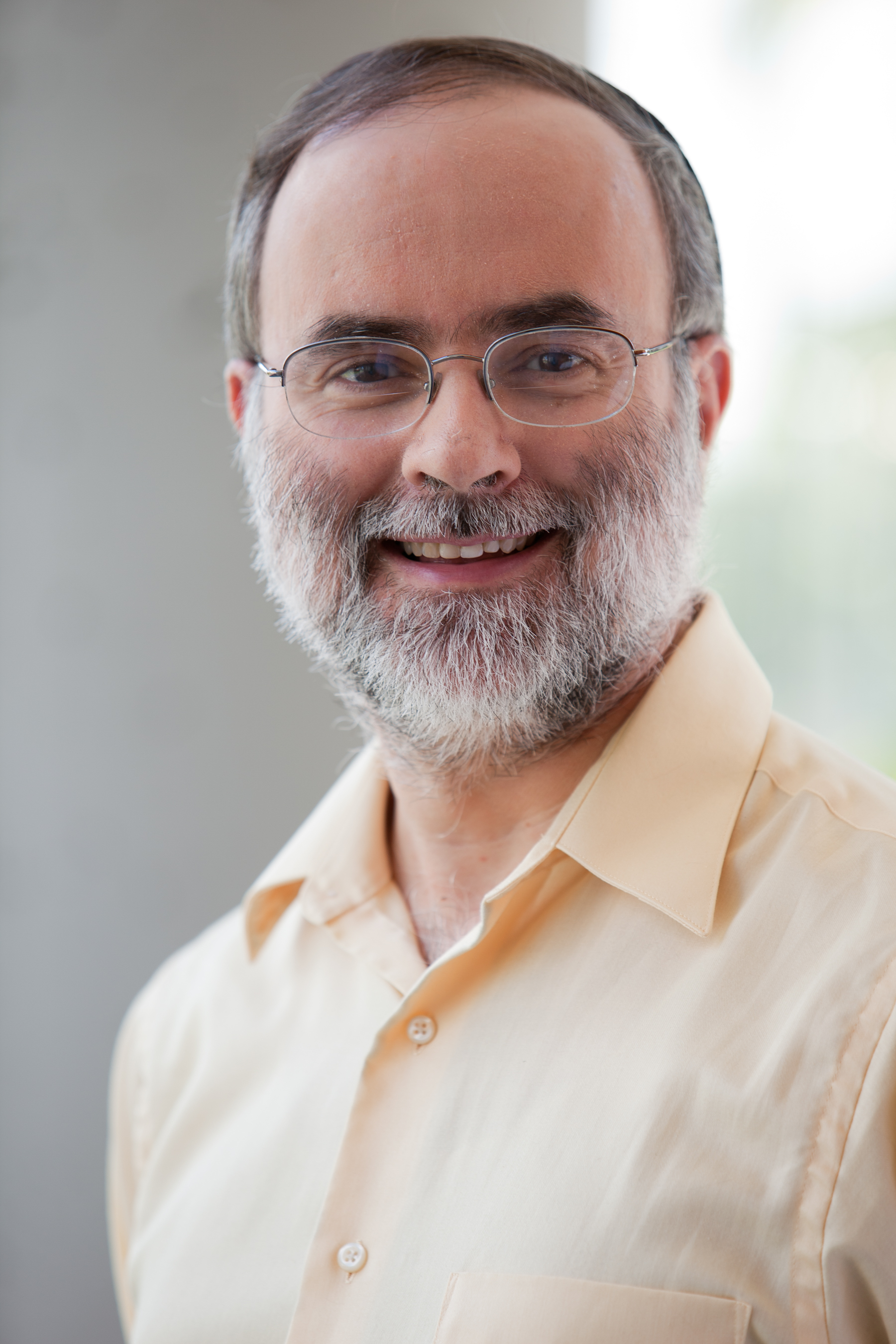
Professor, Epidemiology & Population Health
Professor, Saul R. Korey Department of Neurology
Alzheimer's disease/dementiaAgingCognition
EpidemiologyBiostatistics
Dr. Hall is a biostatistician recognized for leading important long-term studies of aging and dementia. His research has shown, for example, that brain-stimulating activities delay the onset of dementia. He is the longtime director of the statistical core of the Einstein Aging Study, one of the longest-running prospective studies of aging in the country. He is also the lead statistician for the data coordinating center of the federally funded World Trade Center (WTC) Medical Monitoring & Treatment Program, which provides free health monitoring and treatment for workers and volunteers involved in the rescue, recovery and clean-up activities at the WTC site in New York City. read more...
Richard B. Lipton, M.D.

Vice Chair and Professor, Saul R. Korey Department of Neurology, Einstein
Director, Montefiore Headache Center
Director, Einstein Aging Study, Einstein
Edwin S. Lowe Chair in Neurology, Einstein
HeadacheAgingAlzheimer's disease/dementia
MigraineCognitive aging
A noted authority on headaches and migraine, Dr. Lipton is director of the Montefiore Headache Center, recognized internationally for its leadership in the diagnosis, classification and treatment of headache disorders. Dr. Lipton is also director of the Einstein Aging Study, which has been examining both normal brain aging and the special challenges of Alzheimer’s disease and other dementias since 1980. read more...
Sophie Molholm, Ph.D.

Professor, Pediatrics
Professor, Dominick P. Purpura Department of Neuroscience
Professor, Psychiatry and Behavioral Sciences
Director, Sheryl and Daniel R. Tishman Cognitive Neurophysiology Laboratory
Co-Director, Rose F. Kennedy Intellectual & Developmental Disabilities Research Center (IDDRC)
AutismBrain imaging (Electrophysiology and fMRI)Sensory processingMultisensory integrationExecutive functionPredictive processing
Dr. Molholm is a leader in the field of multisensory integration and focuses her research on developmental disorders, with an emphasis on autism, and on rare genetic conditions. She studies how the human brain processes and integrates sensory inputs—sight, sound, and touch—to impact perception and behavior. She also studies higher order processes such as attention and executive function, and how these interact with lower order cortical processes. Using non-invasive techniques, including brainwave electroencephalogram (EEG) recordings and magnetic resonance imaging (MRI), Dr. Molholm examines the link between deficits in information processing and autism, and how these relate to different neurodevelopmental and neuropsychiatric conditions. read more...
Jeffrey E. Segall, Ph.D.

Professor, Anatomy and Structural Biology
Professor, Pathology
Betty and Sheldon Feinberg Senior Faculty Scholar in Cancer Research
Biomedical technologiesImagingTumor cell imaging
Dr. Segall studies how tumor cells invade tissues and spread through the body. He has developed sophisticated imaging methods for following individual tumor cells moving in living animals. For example, one of his techniques involves a tiny glass window implanted in the skin of a mouse that allows scientists to track individual cancer cells as they spread a tumor site and attack other parts of the body. This technique could one day be used for assessing the effectiveness of specific drugs in preventing cancer from metastasizing. read more...
Robert H. Singer, Ph.D.
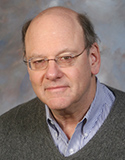
Professor and Co-chair, Anatomy & Structural Biology
Co-director, Gruss Lipper Biophotonics Center
Professor, Dominick P. Purpura Department of Neuroscience
Professor, Cell Biology
Harold and Muriel Block Chair in Anatomy & Structural Biology
Single-cell imagingmRNABiophotonics
Dr. Singer is a leader in the field of biophotonics, which enables scientists to observe activities within living cells at the molecular level, and in the study of mRNA, a molecule that controls the expression and positioning of proteins within cells. Dr. Singer, who was called a “pioneer” by Science magazine, leads a robust lab that focuses on how RNA is expressed by the genome and how it travels from the site of its birth to its ultimate location in the cell where it makes proteins. read more...
Joanna L. Starrels, M.D., M.S.
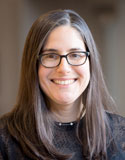
Associate Professor, Medicine (General Internal Medicine)
Attending Physician, General Internal Medicine, Montefiore Health System
Prescription opioid use in chronic painPrescription drug abuseOpioid prescription guidelinesOpioids and HIV
Dr. Starrels is a physician, teacher and researcher who focuses on the safety and effectiveness of opioids for the management of chronic pain. Her research centers on defining best practices for managing chronic pain in primary care and HIV-treatment settings. She studies the benefits and harms of using treatment agreements, urine drug testing, and prescription monitoring programs in pain management; the effectiveness of collaborative care models for integrating behavioral health care and pain management; treatment of opioid use disorders in primary care settings; and the impact of opioid analgesic use, misuse and disorders on HIV outcomes. read more...
Joe Verghese, M.B.,B.S., M.S.

Professor, Saul R. Korey Department of Neurology, Einstein
Murray D. Gross Memorial Faculty Scholar in Gerontology, Einstein
Chief, Divisions of Cognitive and Motor Aging, Einstein and Montefiore
Attending Physician, Department of Neurology, Montefiore Health System
Chief, Division of Geriatrics, Montefiore Health System
Alzheimer's disease/dementiaGait/mobilityAgingFallsFrailty
Dr. Joe Verghese is a board-certified neurologist and expert on aging who assesses how diseases and aging affect cognitive ability and mobility in older adults. Among his current projects, he is evaluating the effectiveness of a non-invasive brain stimulation technique intended to alleviate symptoms of Alzheimer’s disease and improve brain function. He is also conducting studies across the world to identify the causes of cognitive impairment and risk factors for Alzheimer’s disease and dementia. read more...
Jan Vijg, Ph.D.

Professor and Chair, Genetics
Professor, Ophthalmology and Visual Sciences
Lola and Saul Kramer Chair in Molecular Genetics
GeneticsGenomic instabilityAging
Cancer
Dr. Vijg studies the molecular genetic changes associated with aging. Instability of genome and epigenome – the entire set of an organism’s genes and the switches that control their activity – has long been implicated as the main cause of cancer and of the loss of organ and tissue function associated with aging. read more...


